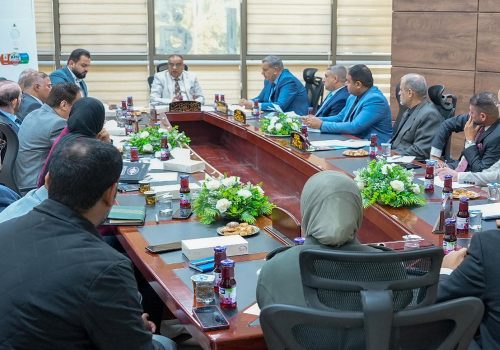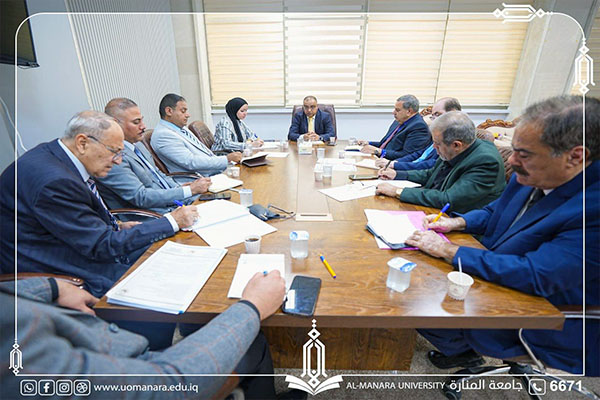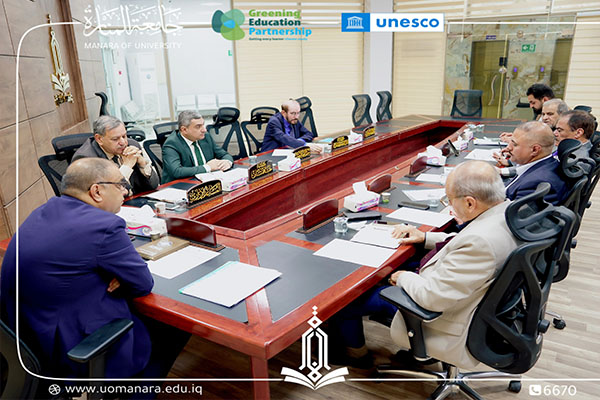
Overview of the University Council
The University Council is the highest academic and administrative body in the university. The council meets at least once a month, and its president may call for an extraordinary meeting when necessary or upon a written request from two-thirds of its members. The quorum for the council is met with the attendance of two-thirds of the members, and decisions, recommendations, and proposals are made by the majority of those present. In the event of a tie, the side supported by the council president prevails.
The minutes of the meetings are recorded in a special register and signed by the president and members of the college council. The college submits the council’s decisions and recommendations to the ministry within fifteen (15) days from the date of their issuance for review and approval.
Members of the University Council
| No. | University Council | Membership |
|---|---|---|
| 1 | University President | President |
| 2 | Assistants to the President for Academic and Administrative Affairs | Members |
| 3 | Deans of colleges | Members |
| 4 | One representative of the university’s founding body who meets the requirements for teaching staff at official universities | Member |
| 5 | Faculty representative | Member |
| 6 | Rapporteur and Secretary of the Council | Member |
| 7 | Student representative from university/college students | Member |
Powers of the University Council
First: The University Council Exercises the Following Duties
Approving admission requirements and determining the proposed number of students to be admitted at the beginning of each academic year.
Approving curricula and submitting them to the ministry, as well as approving and announcing final results.
Granting academic degrees to graduates.
Forming specialized committees to facilitate the council’s tasks and approving academic promotions for faculty members.
Recommending the establishment, merging, or cancellation of colleges and academic departments.
Approving the budget and final accounts, as well as reallocating funds between budget categories.
Determining and adjusting annual tuition fees when necessary.
Donating movable assets to universities, colleges, and educational and scientific institutions, as well as providing financial aid and rewards in coordination with the founding authority.
Contracting with faculty members from Arab and foreign countries according to the regulations approved by the ministry and adopted by official universities, except for determining salaries.
Approving the appointment of faculty members and other employees, determining their salaries and bonuses, accepting resignations, and terminating their services.
Approving the remuneration and fees for external lecturers.
Concluding agreements with universities, colleges, and scientific institutions engaged in research both inside and outside Iraq.
Suspending studies partially or entirely for a period not exceeding one week when necessary, provided that the ministry is immediately informed with justifications.
Approving the staffing plans for the university, colleges, and academic departments.
Second: The University Council May Delegate Some of Its Powers to the University President.



